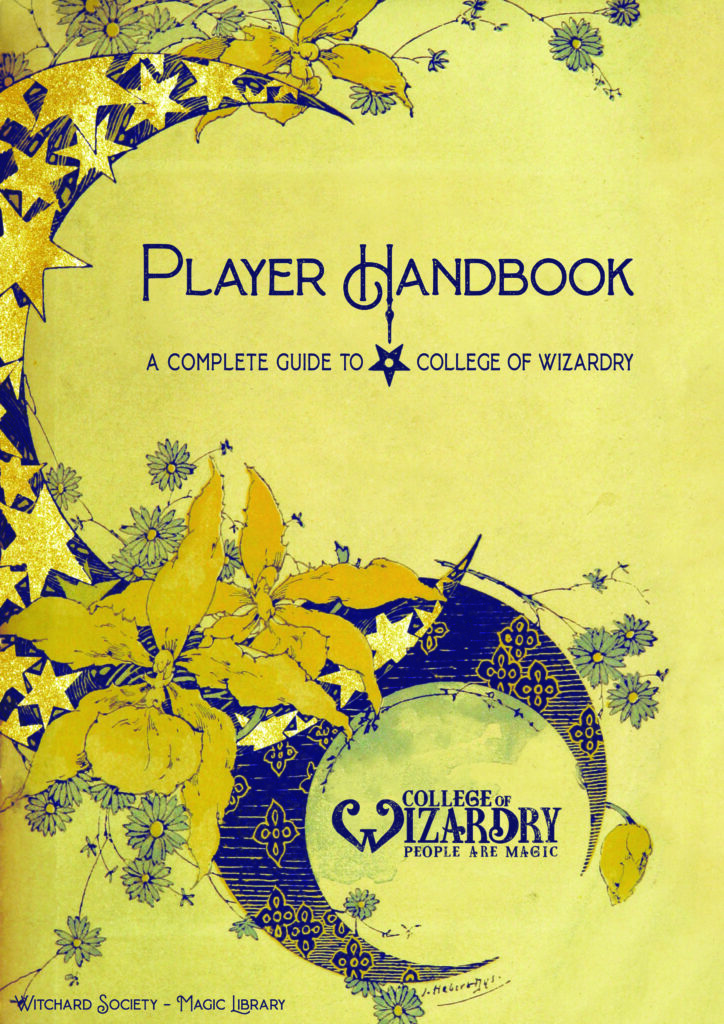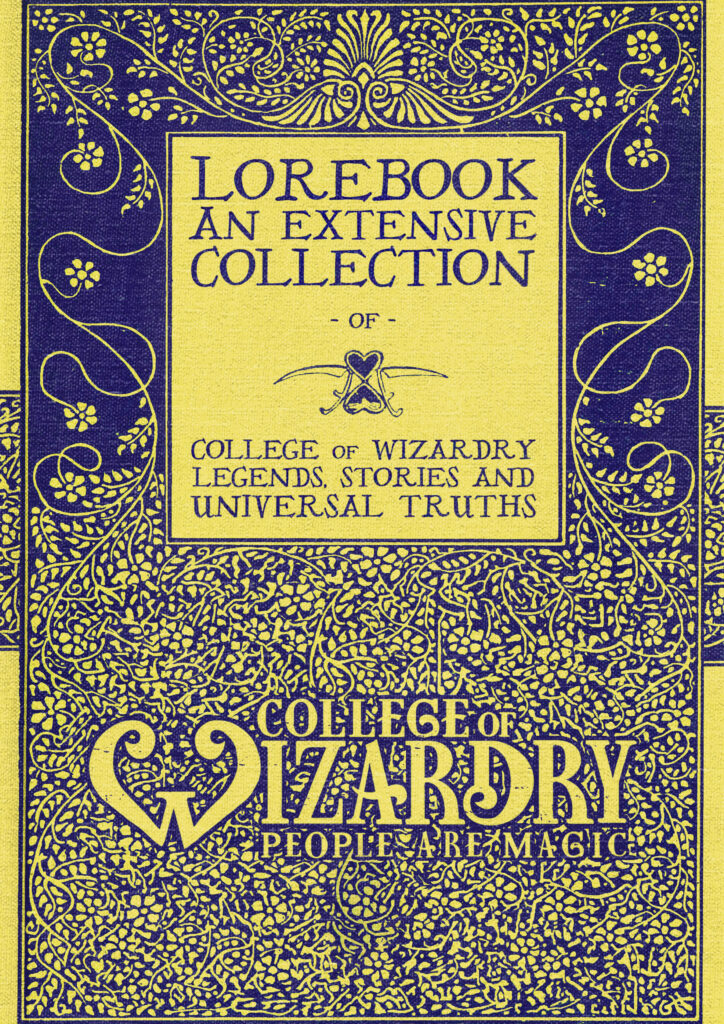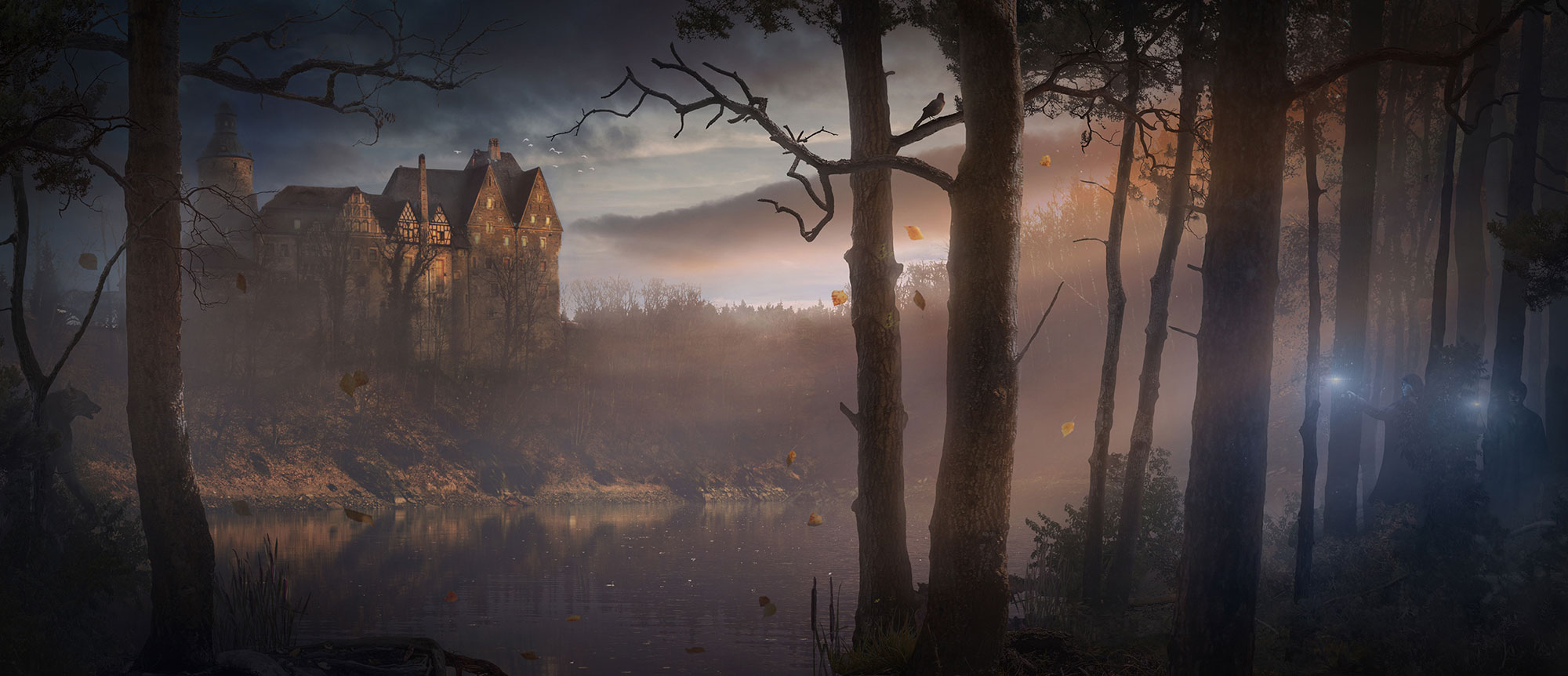

College of Wizardry is the largest immersive magic school in the world. Study magic and make life-long friendships, at all inclusive overnight stay at a real castle. Go to class, explore secret passageways, adventure onto the castle grounds and face mystical beings.
The Next Event
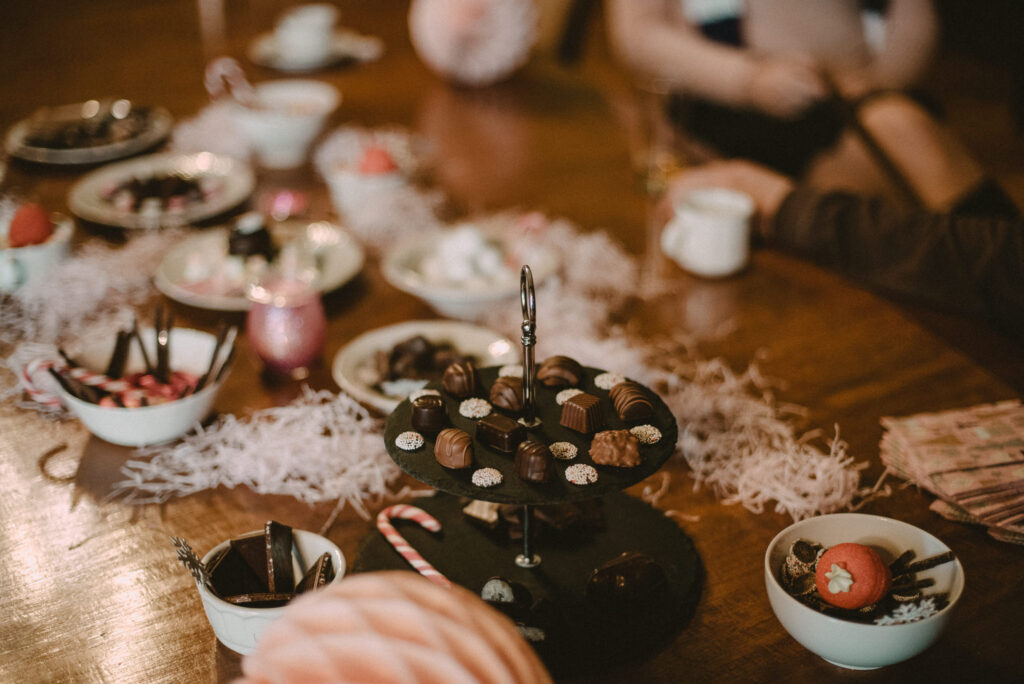
College of Wizardry 27: Wintertide
December 11-14, 2025
Czocha Castle, Poland
It’s wintertime at Czocha! This school year starts with festive spirits, and while it might be chilly outside, the castle is full of joy and warmth. In addition, Headmaster Brimstone and his Staff are setting up challenges for each of the Paths. Are you ready to take them on?
The Experience
In College of Wizardry, over 100 participants take the roles of the students and Staff of Czocha College of Witchcraft and Wizardry. Over the course of three days you can attend lessons and club activities, study spells and potions and go on adventures with your friends. Meeting magical creatures in the forest, playing pranks, sneaking out after curfew… There are many stories to be told, and you decide which ones you want to take part in. The game also ends with a magical ball and the awarding of the Czocha Trophy to the House with the most House Points!
The event is set in a beautiful 13th-century castle, complete with secret passageways, grand halls, alchemy cellar and much more. You will be sleeping in the castle, and the ticket includes three meals a day and a robe and tie to borrow. We also organise bus transport from the Berlin airport.
You can either receive a pre-written character sheet with ideas for what to do at the game, or work with us to create your own. Each student will also belong to one of the five Houses and study a selection of magical lessons. This gives you plenty of opportunities to find friends, rivals, classmates and others to have unforgettable experiences with!
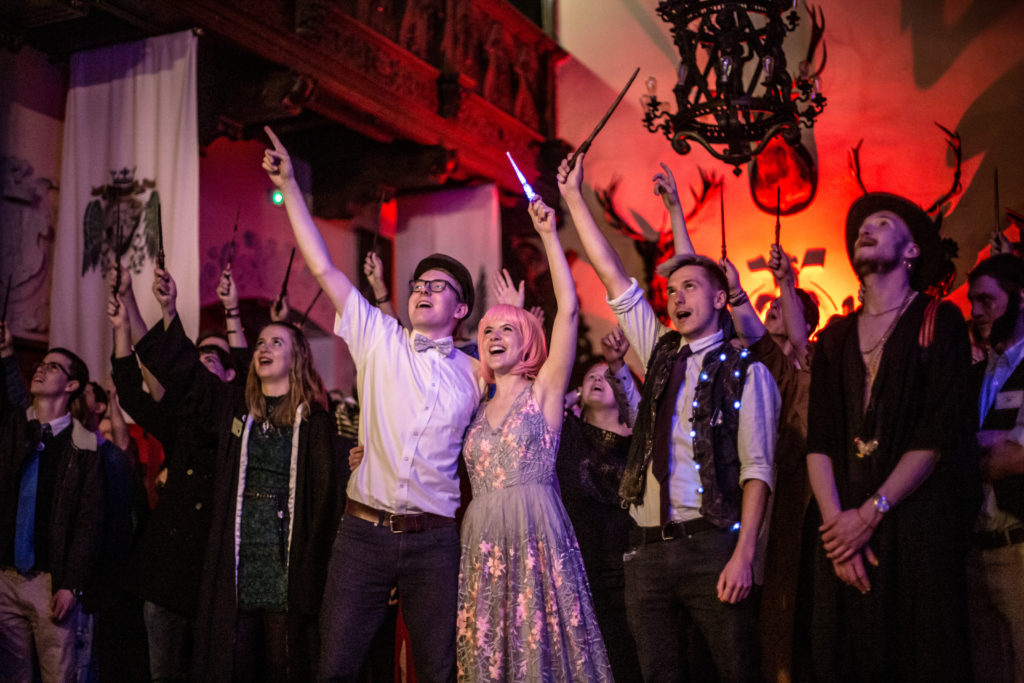
The Houses
The College of Wizardry is home to five student Houses, competing to win the House Cup. Each embodying strong qualities and values, and most often at odds with each other. Join a magical home and be part of the legacy!
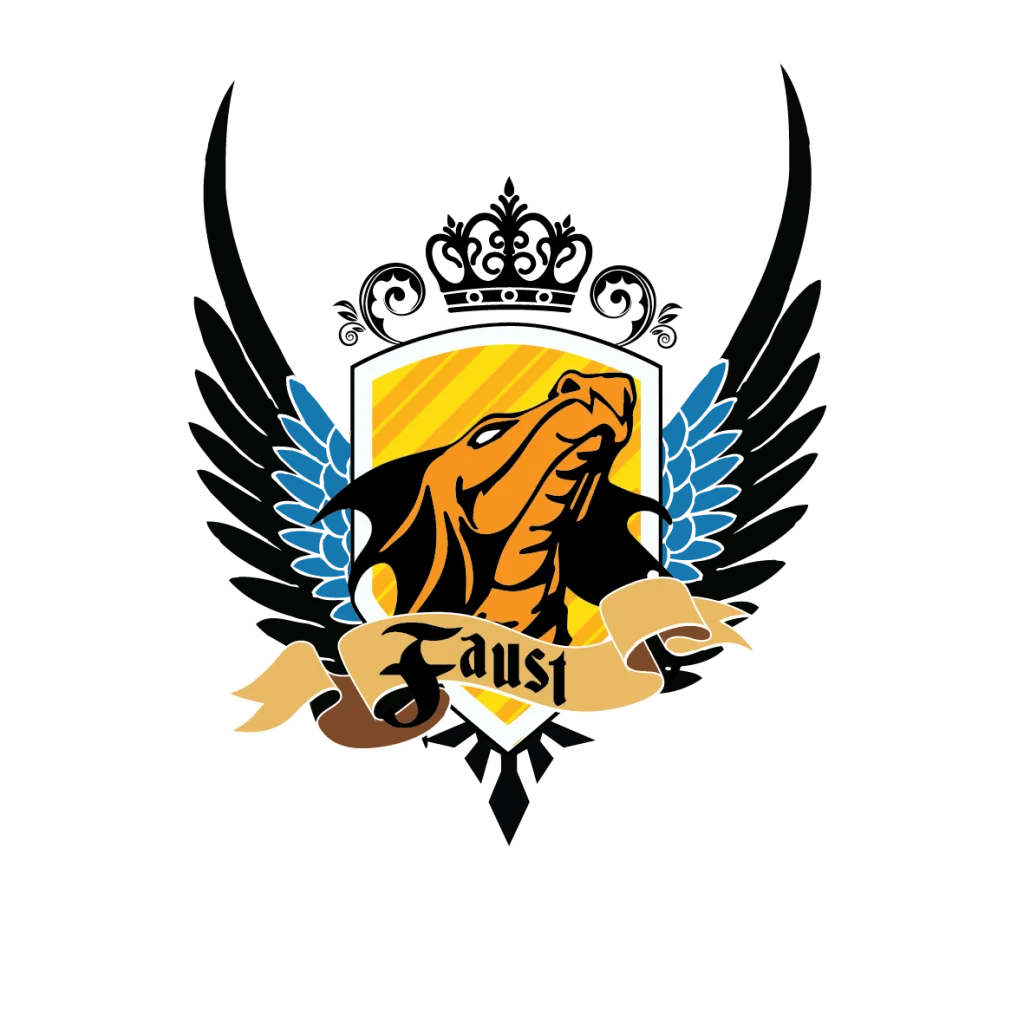
House Faust
Values: Knowledge, Power, Ambition
Symbol: Dragon
Colors: Blue & Gold
Founder: Johann & Johanna von Faust
Influenced by German culture
The famous Doctor Johann Georg von Faust was a mystery to everyone. He created one of the great grimoires of magic and was known as a tireless and dedicated witchard, always in pursuit of knowledge. In Czocha, however, it is a well-known secret that “Faust” was actually two people, the twins Johann and Johanna von Faust. Together they shared the role of “Georg”, and to this day it is unclear which of the famed deeds should be attributed to Johann and which to Johanna. Even those who know the truth of the twins’ existence only refer to them as one unit, Faust.
Every being and every idea exists because somebody believes that it should not cease. At least, that was a cornerstone of Faust’s philosophy, and the same idea still drives the Faustian students at Czocha. The true reason behind Faust’s power is said to have been a deep and true understanding of the nature of this world: if you truly know the inner workings of something, you can also bend it to you will. To Faustians it is obvious that they need to understand not only the world, but also their own strengths and weaknesses, in order to follow in their Founder’s footsteps. Faustians admire productivity and efficiency–sometimes even to the point of ruthlessness. While those individuals tend to strongly color the outsiders’ view of Faust, that is certainly not the whole truth: the House has also produced numerous wise and gentle leaders and respected researchers. Faustians know that there are many different kinds of power, and many different ways to achieve it.
The Faust family was of German descent – some people specify it further and say that they were specifically of Prussian descent, although that is somewhat more contentious. It is certainly not a surprise to anyone that the German spirit suffuses the House, however. The symbol of House Faust is a dragon, inspired by the Dragon of Wawel that Faust allegedly flew several times. Until 1521, the dragon is said to have lived at the nearby castle of Rajsko, on the other side of the lake. No one knows what happened to it, or what may make it reappear.
House Libussa
Values: Creativity, Daring, Foresight
Symbol: Silver Lion
Colors: Purple & White
Founder: Libuše
Influenced by Czech culture
House Libussa is proud to be the House of the Founder of Czocha, the famous Libussa herself. More a legend than a human even while she was alive, Libussa was known for her rebellious nature and strong will to change the status quo. She brought a revolution with her wherever she went, refusing to see anyone stuck in their old ways. Students sorted in her House still follow her teachings and consider them to be the true creed of Czocha College. Other Houses might boast the deeds of their own Founders, but Libussans know that their own was the first – and that this is their castle.
A certain mischievousness and a sense of wonder are the hallmarks of any good Libussan student, and the House has a predisposition towards gathering a truly unique bunch of individuals every year. It was always said Libussa’s students would rather do things in new and interesting ways than learn how to do them like others did – something that turned out to be both a curse and a blessing. After all, some paths are so well-trodden that it can be hard to stand out and be original. Libussans crave something truly new, something that has not been done before, which always pushes them to be more and more creative and unorthodox in their use of magic. Libussa was also said to be a great seer, and Libussans usually care greatly about their own futures and all the opportunities that are still untapped out there.
The symbol of House Libussa is the Bohemian Lion – the coat of arms of the Czech people, but also a symbol of daring, courage, and power. The roots of the House lie in Czech culture, and it shows – indeed, its Founder had a big part in the creation of said culture. It is said that every Czech is a musician, and many kinds of artists, adventurers and great personalities often find their home in Libussa. It could be said that Libussans fit the modern use of “Bohemians” quite well. But most of all, they take immense pride in doing things in ways that others can only shake their heads at – sometimes in disbelief, but also envy.
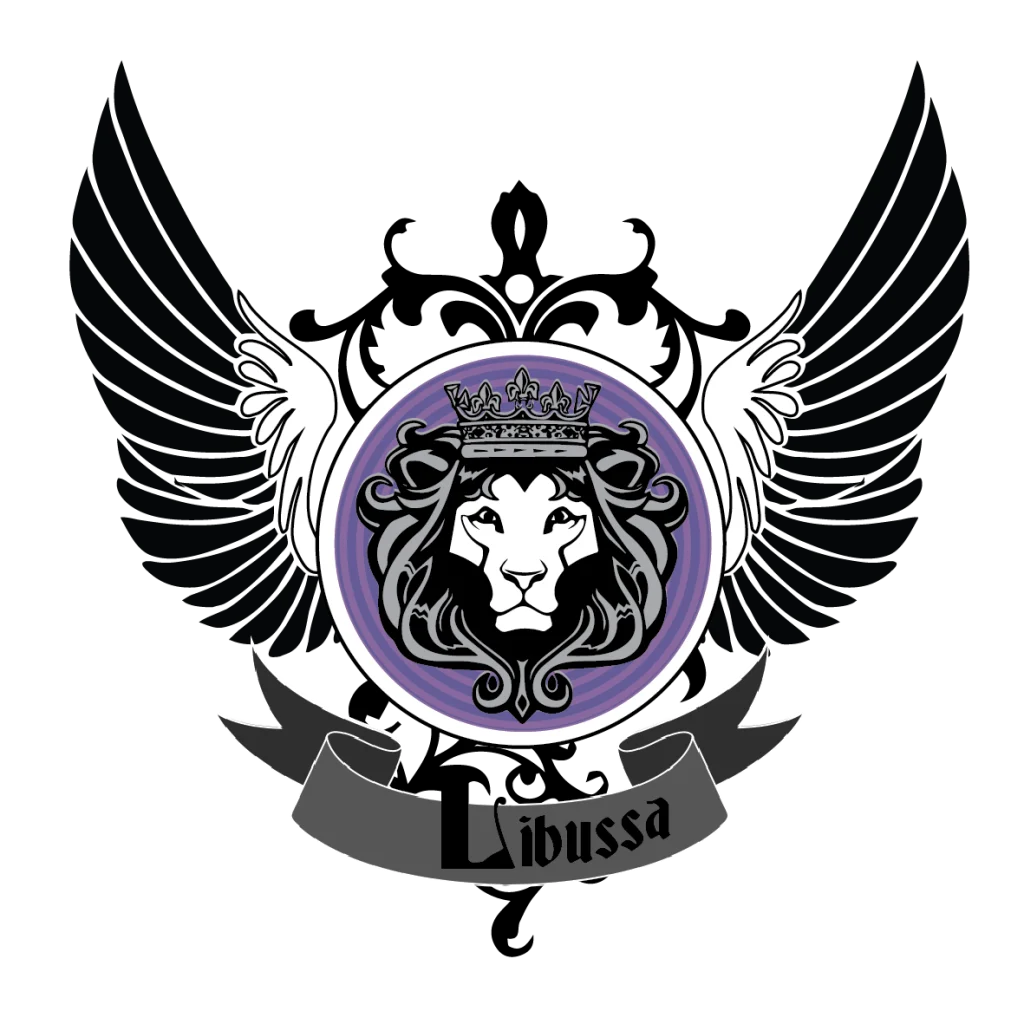
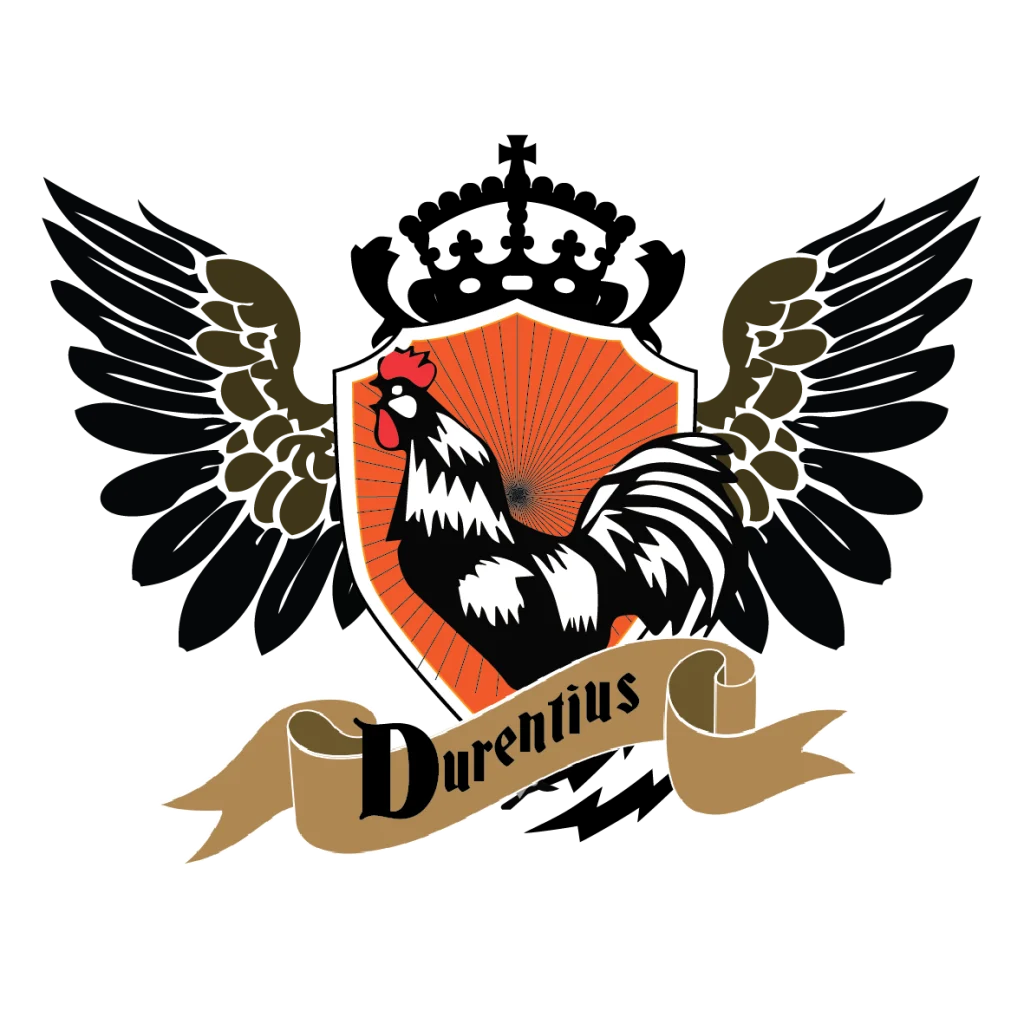
House Durentius
Values: Valour, Diligence, Audacity
Symbol: Rooster
Colors: Orange & Brown
Founder: Durentius
Influenced by Silesian culture
The origins of Durentius, the second of the Czocha Founders, are shrouded in mystery. There are numerous stories and legends about their true identity, but they are all in agreement that they were a master of magical creatures, a true revolutionary in the field of Cryptozoology creating many kinds of hybrid beasts and bending even demons to their will. Durentius was an unstoppable force, always giving everything they had, and hard work and strong conviction are still trademarks of any Durentian.
The members of House Durentius are known as productive, outspoken and energetic. They’re the stragglers, the odd ones out, the tenacious underdogs who never give in and never surrender. The Durentians are perhaps seen as misfits and intense, but they are a nation unto themselves, each and every one of them. To be a Durentian is to have bloodied knuckles and to be in the thick of it, all the time, every time. Diligence and valour define life in House Durentius, because if you bother doing something, it must be done all the way. Durentians are not just great students, but striving to be the best there ever was. Not just troublemakers, but epic pranksters for professors to remember in their nightmares years to come.
The House symbol is the magically modified rooster Durentius rode all the way to the moon and back again. Whether the legend refers to the real moon or a symbolic counterpart is still being discussed – even internally in the House. While other students make jokes about the Durentius Rooster, most of the House students are amazingly proud of their symbol, referring to it whenever it’s possible. It’s a great symbol of the Durentians and their Founder, after all – who else would be audacious enough to ride a common rooster to the moon?
House Molin
Values: Community, Curiosity, Tradition
Symbol: Golem
Colors: Green & Bronze
Founder: Abraham Molin
Influenced by Ashkenazi culture
Molinians follow the way of the legendary Abraham Molin, a true visionary behind modern-day Arithmancy and Technomancy. They dedicated their life to research, and many fields of magic such as golemcrafting and numerology would be very little without Molin’s groundbreaking work centuries ago. They left behind numerous obscure theories and deciphered writings, many of which remain mysteries to this day. Even how they died isn’t quite certain: some legends claim that the house symbol, Molin’s Golem, is actually Molin himself, or that his spirit still lives within the stones of the castle.
Molin tends to change a lot from year to year, as each generation of students have their own interpretation of Molin’s legacy. These new traditions are added to books kept in the Molin Common Room, even if they directly contradict the writings of prior Molinians. In older times, Molin tended to be a House that kept to itself, but in recent years its focus has shifted to fostering community within the school at large. Molinians believe firmly in questioning everything, letting their curiosity carry them to new and complex understandings of the world. Every number is a riddle, every letter is a question, and every moment is an opportunity to invent something new.
Abraham Molin was from an Ashkenazi Jewish background, though like many Jewish mystics they did not think of themselves as religious. While most Molinian students do not personally identify as Jewish, many Molinian rituals still use visual and symbolic elements of Ashkenazic culture. Jewish members of House Molin delight in opportunities to host events like Shabbat dinners and teach the rest of the school about their culture and heritage.
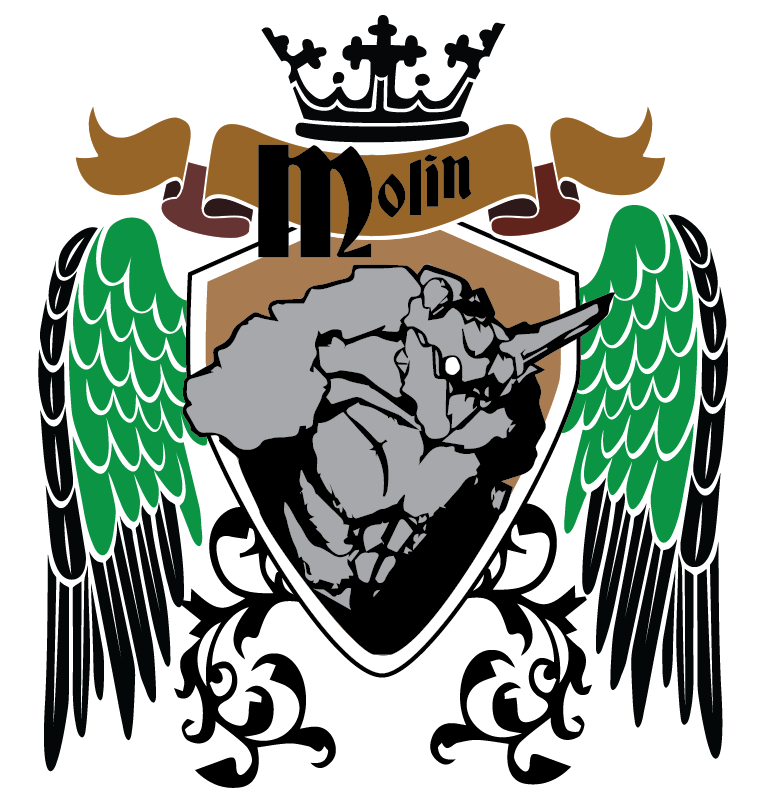
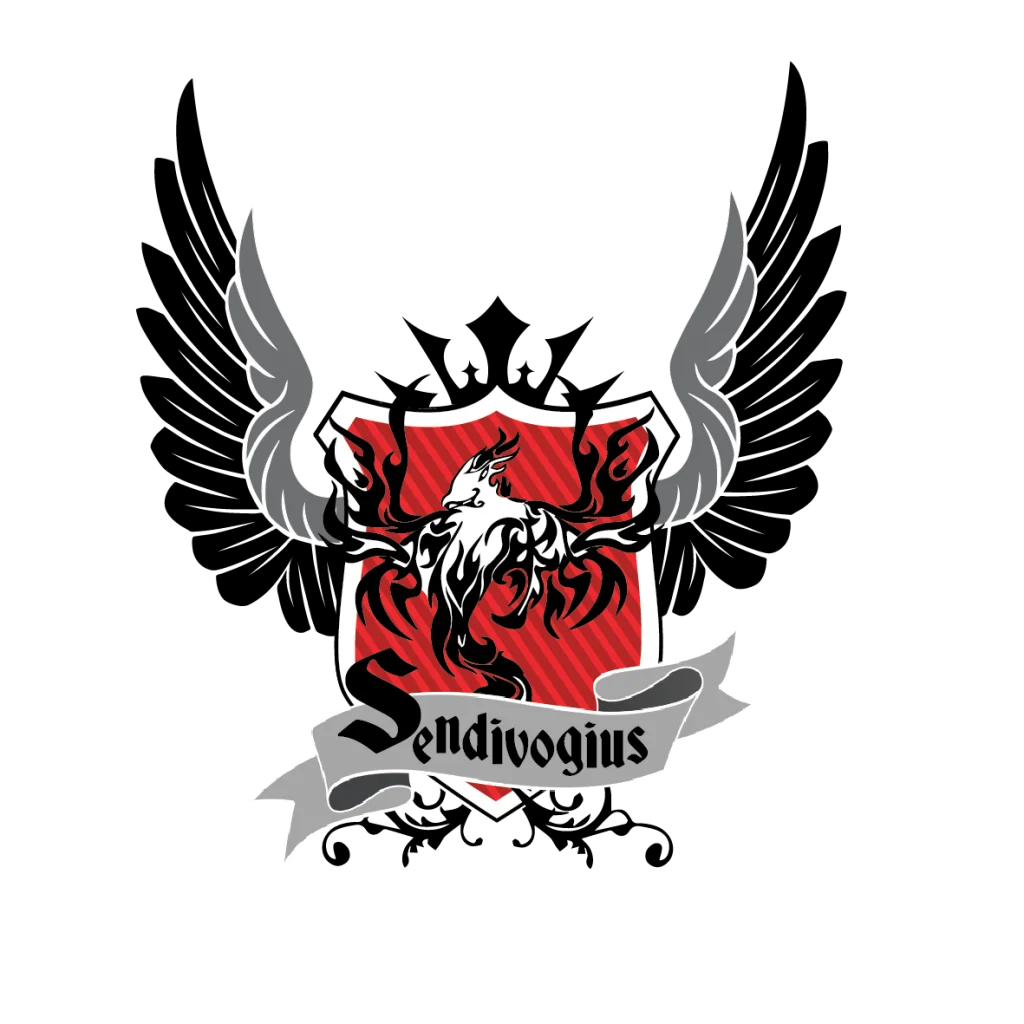
House Sendivogius
Values: Courage, Honour, Diplomacy
Symbol: White Phoenix
Colors: Red & Silver
Founder: Michał Sędziwój
Influenced by Polish culture
The famed Polish alchemist Michał Sędziwój, also known as Sendivogius, was the last of the Founders of Czocha. He arrived when all the others had gone and revived the school back into its former glory. He chose a phoenix as the symbol of his House – after all, with his guidance Czocha truly rose from the ashes. As a nobleman with a big personality and a lauded academic, his work truly took the witchard society huge leaps forward, and his vigour to change the world still lives on in the Sendivogians of today.
The legacy of Sendivogius later formed the identity of his house. Courage, honour and diplomacy are necessary for any witchard dealing with the great powers in this world–some magical and some not. In the beginning the pupils of Sendivogius also gravitated towards disciplines that could be used in the mundane world. Saber fighting, horse riding and court etiquette were seen as just as important as knowing how to levitate. Some of this ideology still perseveres, especially among the House members from upper-class Polish families. Inspired by their Founder, the House has also had multiple skilled alchemists over the years, and trying out Sendivogian potions and other magical concoctions can be quite an experience.
On the other hand, the ideology of phoenixes and rebirth is deeply rooted in the House culture: Sendivogians have a flair for the dramatic and the heroic, the new and exciting. They also believe in new beginnings and second chances, and no matter what you have done in life, among them you will find a place to try again and become a better version of yourself. Being a Sendivogian means being proud of what you are, always trying again and again until you succeed. This often makes Sendivogius a mixed bunch, with both valiant knights and reckless rebels supporting each other in their quest for greatness.
Prefects
Each of the five Houses is led by two Prefects, two Senior students chosen for the task for their exceptional qualities. They’re the creative visionaries, passionate figureheads and caring older siblings, who look after their housemates and make sure that traditions are upheld, events organized and House spirit kept high. When the students need help and guidance, they often go to their Prefects – and as the students of Czocha are constantly getting in trouble, the life of a Prefect is surely never dull.
Prefects also affect the future of their Houses in a very concrete way: it is their job to sort the Juniors when they arrive at Czocha. So, for the first couple of days everyone will be scrambling to get to know the Juniors and bring their Prefects recommendations about the best and brightest. Prefects are also in charge of the initiation rituals to welcome the Juniors into their new Houses, and making sure that they get along with their newly assigned Sophomore mentors and get a great start to their life at school.
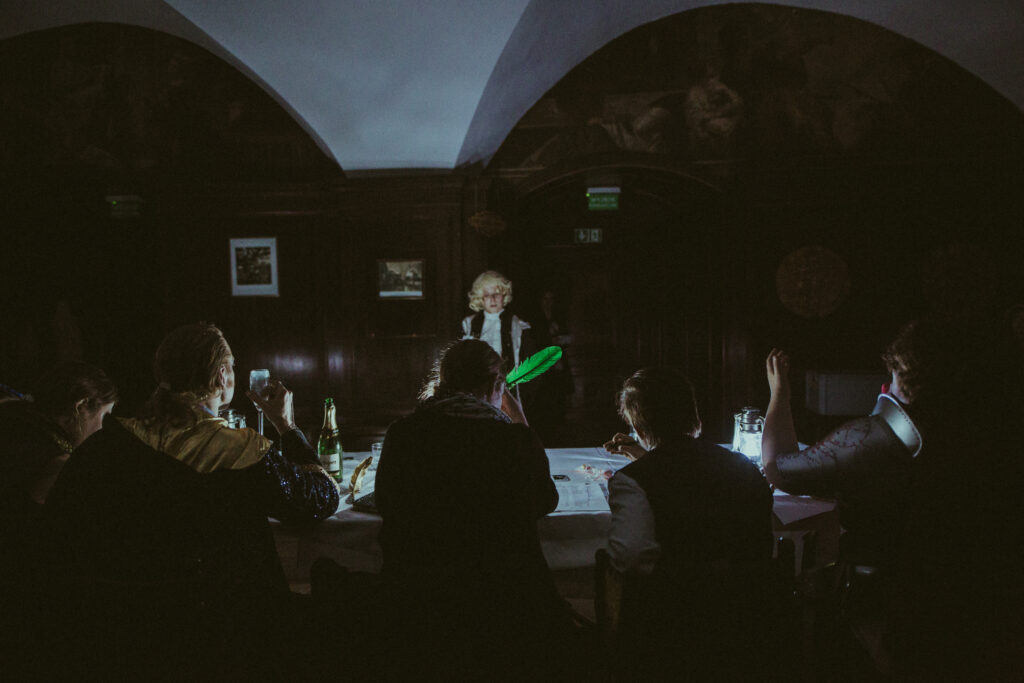
The Faculty
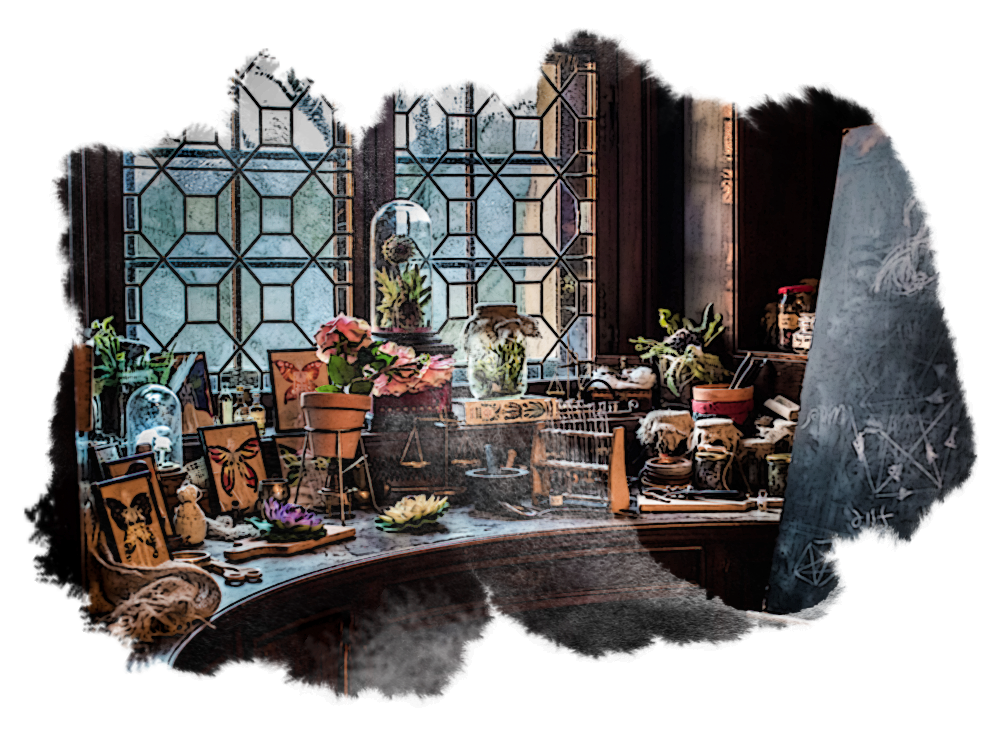
The faculty of Czocha consists of the Head of School, 12 Professors, and usually a number of supporting staff, including Assistant Professors, a Head Guardian, and a Kasztelan. Most professors also function as House Monitors who advise and guide the members of a specific House, often the one they themselves were once members of.
As diverse as the students they reign over, faculty members come from all walks of magical life. From ancient hexborn Professor of Runic Magic to recently graduated temp Herbology professor, they all have their own motivations and ambitions. Some are benign caregivers who want to see their students grow and excel. Others might put their personal agendas before their vocations. After all, what is one more unfortunate student disintegration if it means acquiring a vial of phoenix tears for one’s own private experiments?
One thing that is (usually) undisputed is their authority over the student body. Only faculty members can award or deduct house points, give out hall passes, or hand out detention slips. Furthermore, it goes without saying that their magical skills are far beyond those of their students.
Whether sinners or saints, the influence the faculty have on their students cannot be overstated. They set the tone of academic life at Czocha, and are to a very large extent responsible for the success and safety of the aspiring witchards placed in their care. When the winners of the yearly House Cup hold their speech from the balcony of the Knights’ Hall, it is also to the credit of the Professors who have guided them.
The Paths
Each student chooses a Path — the Path defines which classes you’ll attend and will steer you through a curriculum of magical classes.
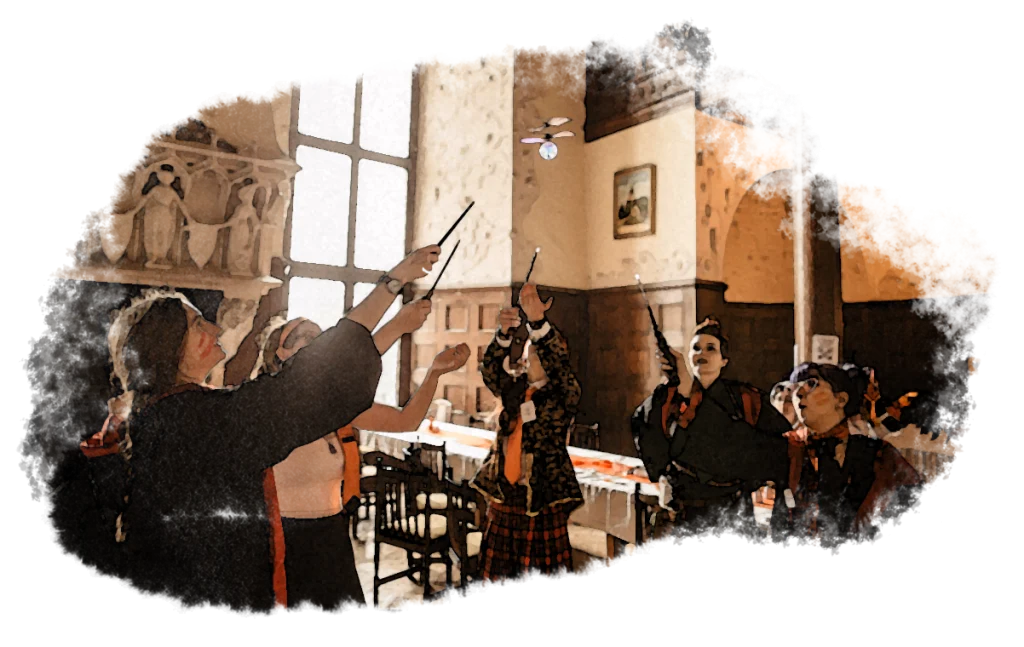
The Artificers
Artificers learn analyzing, building, and repairing magical objects and fantastical contraptions. The field of Artificery ranges all the way from classic enchantments to wand making and golem crafting, and Artificers are always striving to create even better tools and trinkets to aid the everyday life of the witchard society. They deal in the realm of brass and crystal, clay and clockwork, transformation and creation.
Most magical objects that witchards use come from professional Artificers, and there’s always plenty of work in both designing and creating new magic items. Some Artificers concentrate on research, some set up their own artifact business or a repair shop. There are many different methods and principles to Artificery, and different schools of thought are very persistent that their way is the right way. While combining magic with mundane technology has gained some popularity in recent years, there are still many traditional Artificer families who are proud of their old ways and scoff at such modern nonsense.
Artificers study Technomancy, Arithmancy, Magical Theory, Conflux Studies, Runic Magic and Magical Defence.
The Cryptozoologists
Cryptozoology is the study of magical nature, ranging from creatures to herbs and beasts to spirits. The students of this path learn how to identify all kinds of living things, what kind of powers and capabilities they possess and how to deal with them. Cryptozoologists know how to converse with treefolk, which berries to pick for your potions, and how to get out of an encounter with fae unharmed.
Career options for a Cryptozoologist vary widely depending on their specialization. Some end up working at farms, parks and sanctuaries, caring for the local fauna or protecting endangered species. Of course, not all creatures are benign and harmless, so often a Cryptozoologist can end up in more of a troubleshooter position, tracking down escaped griffins and even capturing enraged dragons. A cryptozoologist well-versed in magical plants might open a shop selling potion ingredients, and those interested in non-corporeal and extraplanar creatures could find employment as mediums and exorcists.
Cryptozoologists study Beastology, Invocation, Herbology, Alchemy, Mind Magic and Ritual Magic.
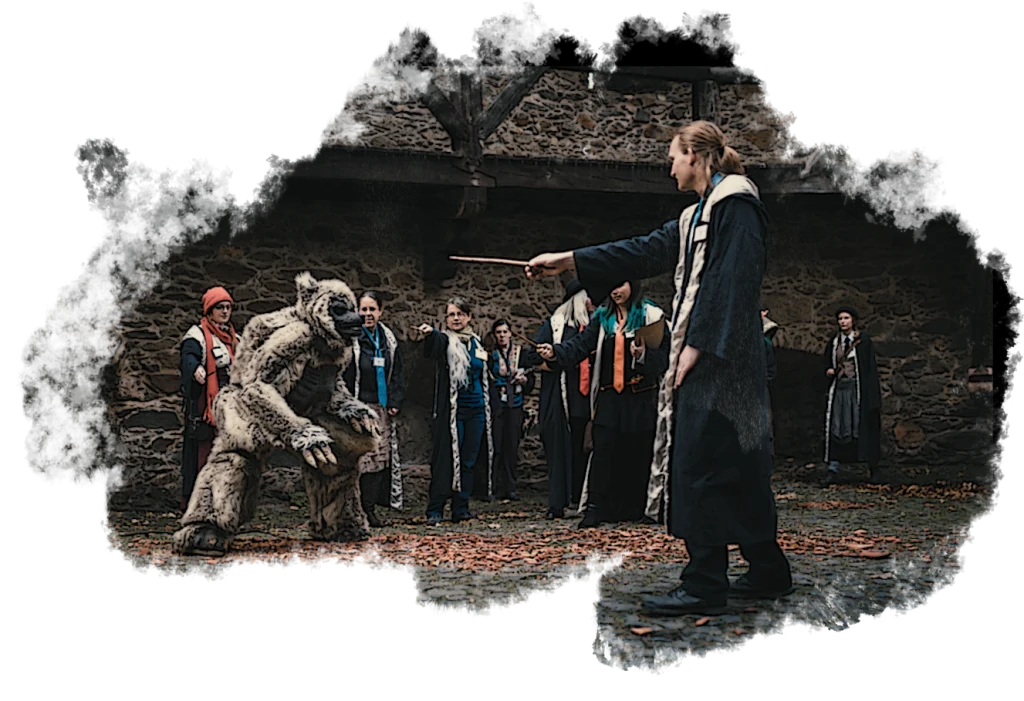
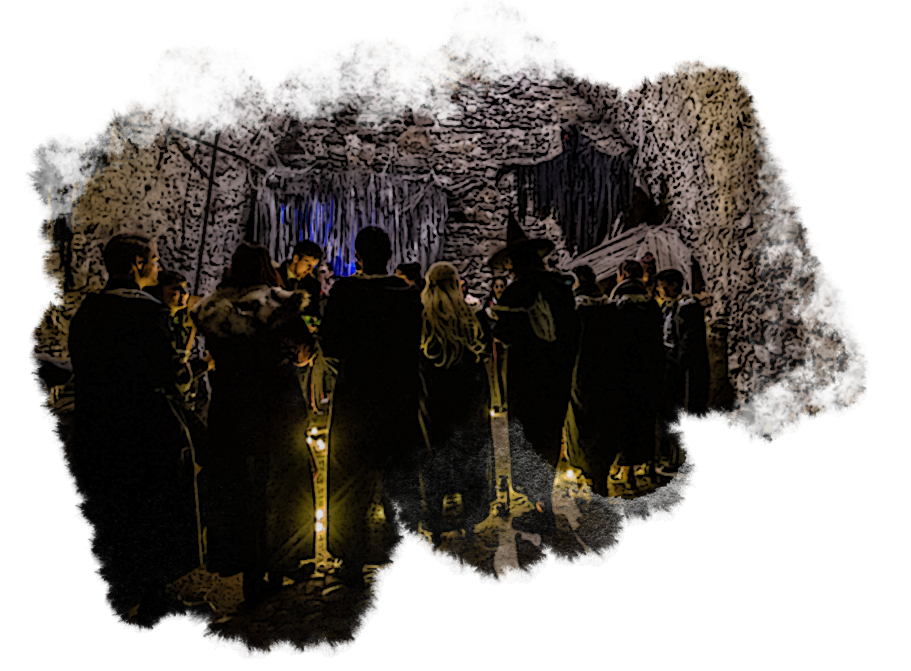
The Curse Breakers
Curse Breakers have an extensive knowledge of how spells, enchantments and hexes work. Got hit by an unfortunate Tripping Jinx? Accidentally touched a cursed amulet and now you can only speak in verse? You’ll need a Curse Breaker. They understand the inner workings of magic, knowing how spells can be altered and deconstructed. Of course, to break a curse you often need to know how it has been created, so most Curse Breakers are also talented Curse Makers.
Curse Breakers are essential in many areas of the witchard society, maintaining wards and other magical defenses, examining and disassembling illegally cursed items, or doing research on how to improve existing enchantments. Some choose more adventurous professions, traveling to forgotten tombs to solve ancient mysteries. An experienced Curse Breaker is sure to have a ton of crazy stories to tell!
Curse Breakers study Runic Magic, Ritual Magic, Arithmancy, Magical Theory, Invocation and Conflux Studies.
The Guardians
Guardians study the skills needed to protect the magical society and keep it up and running. They need to understand the laws and history of witchards as well as the principles behind magic itself. They also have the most extensive education in magical combat, both physical and mental. They know the Traditions by heart and are dedicated to upholding them.
It is the dream of many Guardians to join the Guardian Order and do active fieldwork catching rogue necromancers and other criminals, but there are also many other career options. Most administrative and bureaucratic positions benefit from a Guardian skill set, and whenever new laws or treatises are written, Guardians are almost certain to be present. While the Guardian education is not a requirement to become a politician, it certainly does help. As a result, the Guardian class is often a mixture of hotheaded heroes, ready to rush into action, and future diplomats who yearn to understand the fundamentals of the witchard society.
Guardians study Magical Defence, Conflux Studies, Mind Magic, Magical Theory, Beastology and Technomancy.
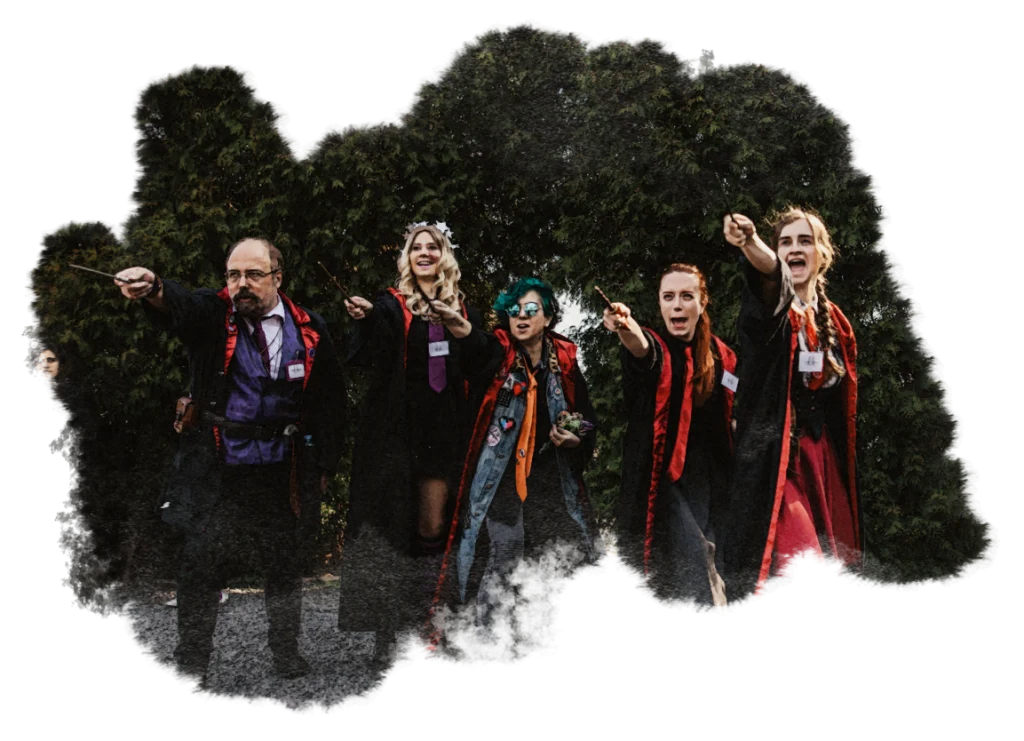
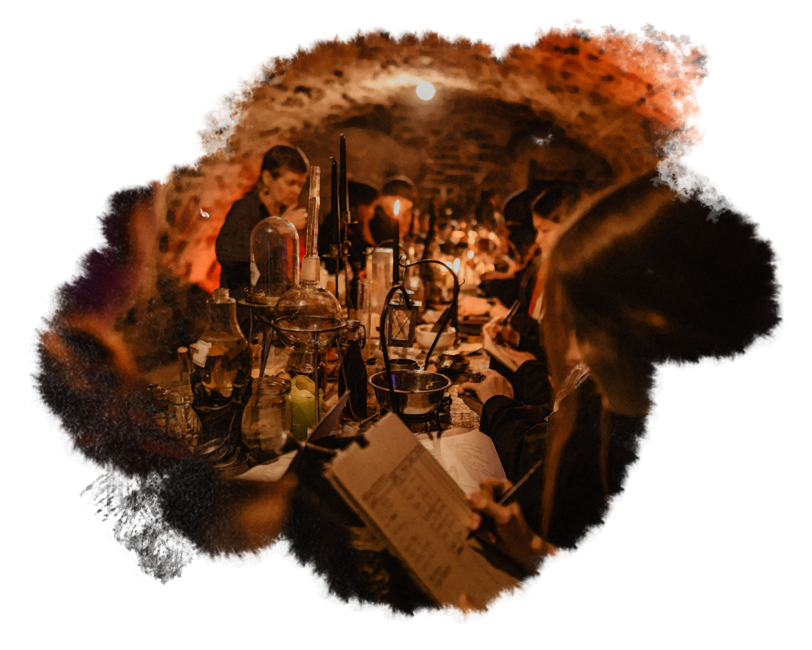
The Healers
The magical world is not a safe place, and Healers are always needed to patch people up when something goes wrong. Be it a botched spell, lost duel or barely escaping from a rampant magical creature, you always want to have a Healer available. Healers learn to diagnose and treat various magical diseases and injuries and understand the workings of both witchard’s body and mind. While it’s crucial for every Healer to know their potions, they also learn other methods of healing such as rituals and runes.
Almost any company, institute or department can benefit from hiring a skilled Healer. Some of them work in large, conflux-governed magical hospitals, others choose positions in smaller institutions such as schools or even set up their own small clinic. Those talented in Mind Magic can also use their knowledge as counselors, psychologists and therapists.
Healers study Alchemy, Herbology, Beastology, Mind Magic, Ritual Magic and Magical Defence.
Student Life
There is more to the life of a student of magic than House rivalries and endless hours spent in the library. The College of Wizardry is home to a number of Clubs and Secret Societies. And that’s not even mentioning the intense and amazing sport known as Fireball Dragon.
Fireball Dragon
Fireball Dragon is the most popular sport of the European Confluxes. The non-initiated might call it “slightly more complicated dodgeball”, but in truth it’s so much more than that: a beautiful game full of tactics and teamwork. Almost every Conflux has its own Fireball League, and Czocha is no exception. The best players at school are followed by admiring looks and longing sighs wherever they go. Many might dream of becoming professional Fireball stars after graduation, but the competition is tough and only the absolute best can make it.
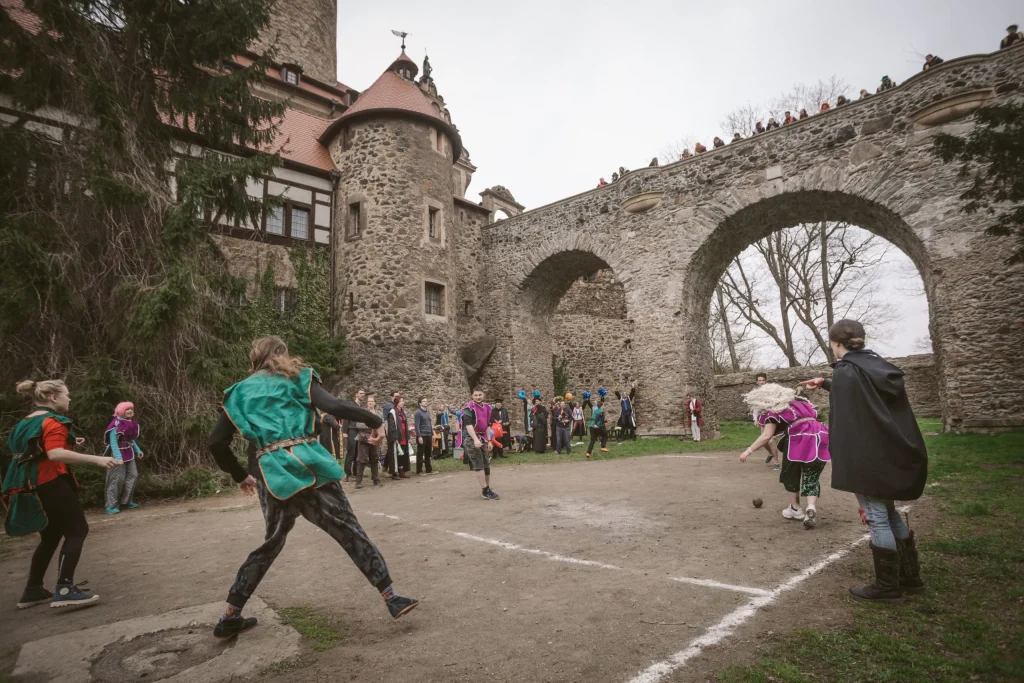
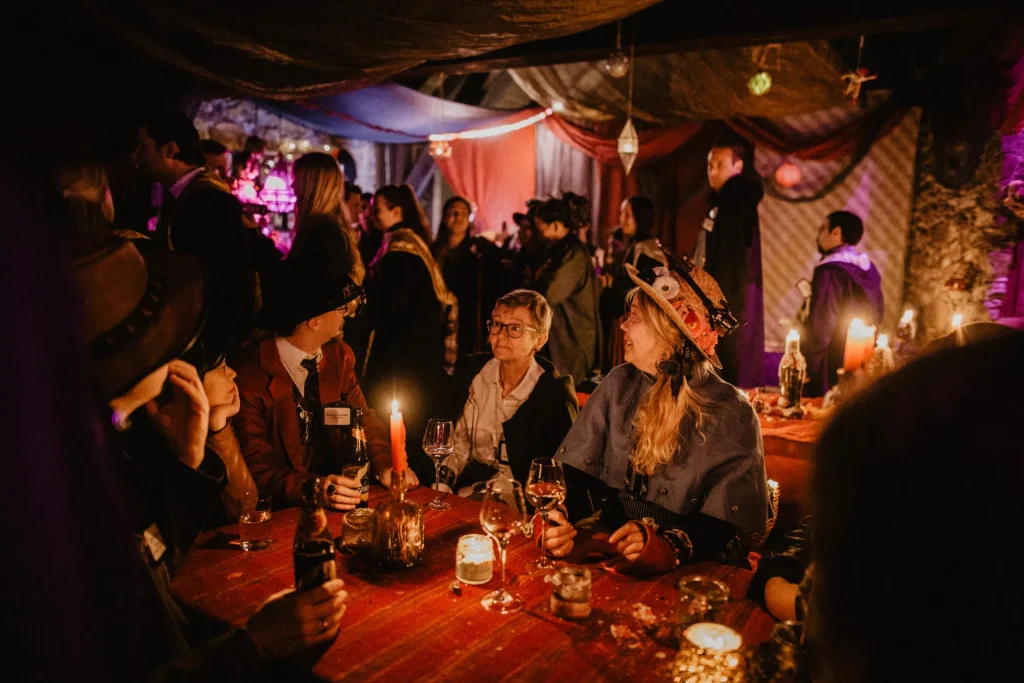
Clubs
Each student belongs to one of the school clubs. They’re a place to find like-minded individuals, learn new things and show off your skills. Most clubs have one or two meetings during the first school days, and some might have grand plans and events to organize, such as performances or competitions. In addition to the clubs, many students love playing Fireball Dragon and belong to their House team, anxiously waiting for the first tournament of the year.
Secret Societies
Not all clubs of Czocha convene in broad daylight. Some of them are specifically centered around the forbidden and dangerous, and getting caught as a member will definitely get you in trouble. They have been disbanded many times in the course of history, but each time some of the members linger and quietly start recruiting again. All details about the clubs and their members are well-guarded secrets, and in order to join you must have the right connections or be very, very lucky.
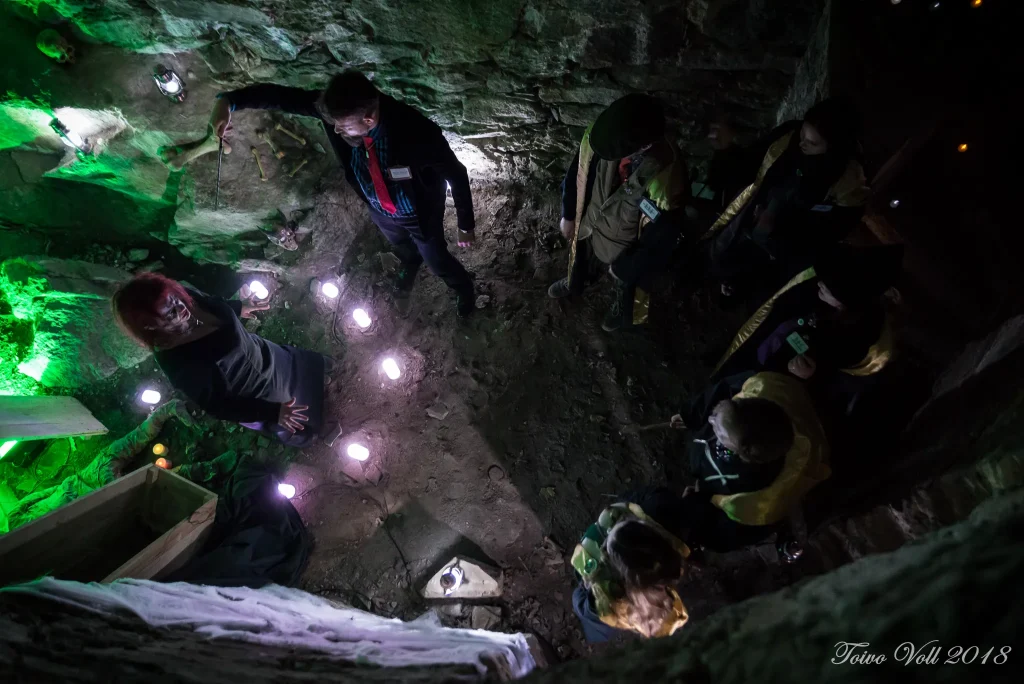
Read More
To find out more about the practical details and lore of our events, please have a look at our Player Handbook and Lorebook.
The Team

Laura Sirola
Lead Producer
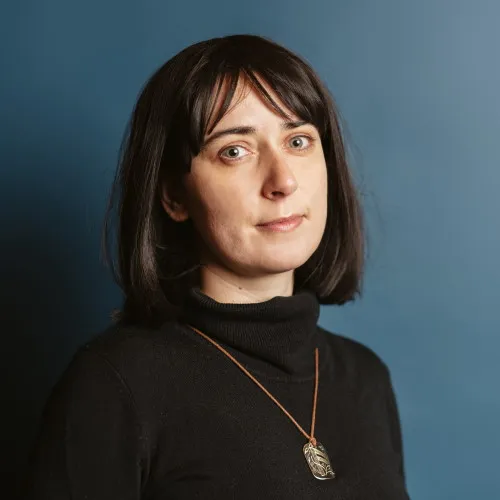
Karolina Fairfax
Story Lead
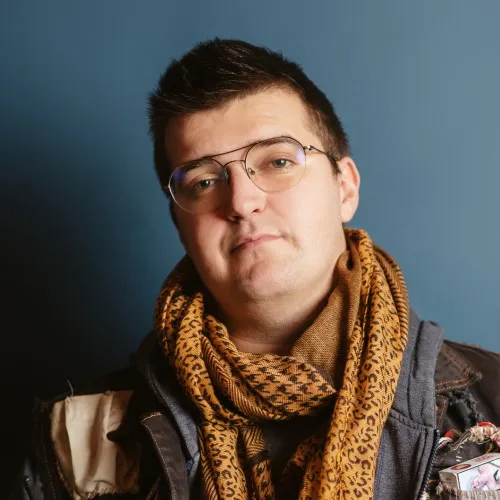
Iryt Kraus
Head of Scenography

Aj Smit
Communications
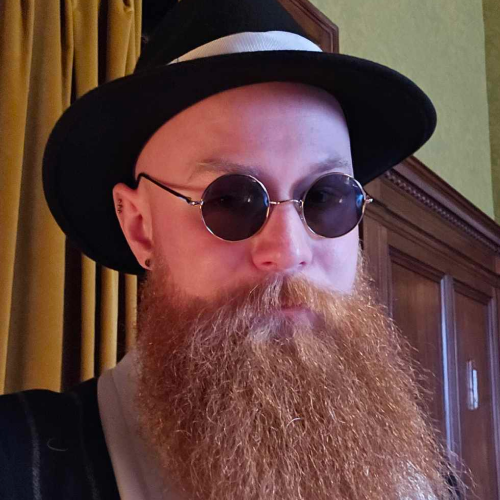
Jan Rożewski
Helper Coordinator

John Shockley
Lore & Story Coordinator

Maciej Krzysztofik
Location & Logistics
Produced in partnership with


